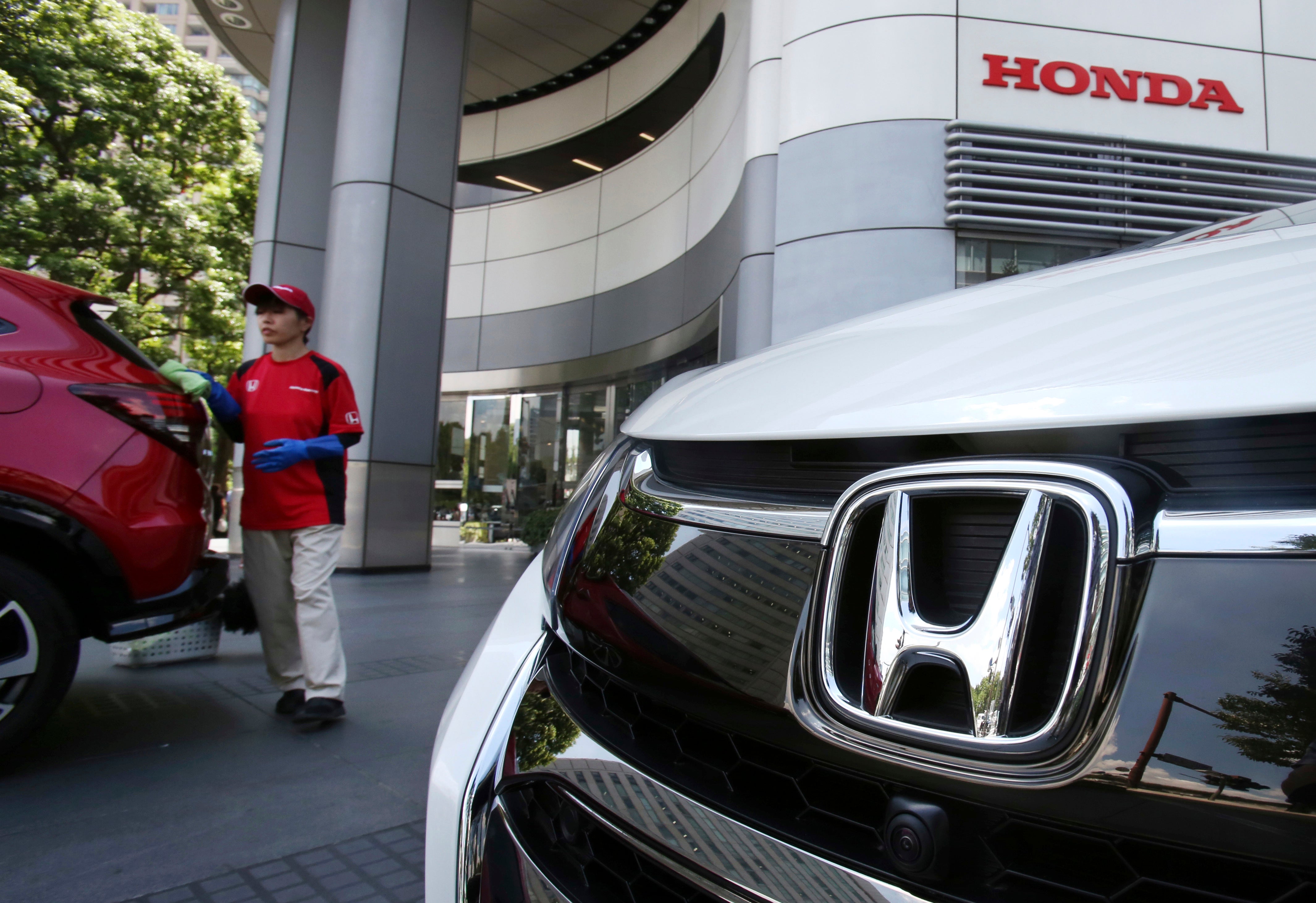Japan's Honda sees declining profits on semiconductor crunch
The semiconductor shortage is hitting another of the world's automakers, despite demand for product

Your support helps us to tell the story
From reproductive rights to climate change to Big Tech, The Independent is on the ground when the story is developing. Whether it's investigating the financials of Elon Musk's pro-Trump PAC or producing our latest documentary, 'The A Word', which shines a light on the American women fighting for reproductive rights, we know how important it is to parse out the facts from the messaging.
At such a critical moment in US history, we need reporters on the ground. Your donation allows us to keep sending journalists to speak to both sides of the story.
The Independent is trusted by Americans across the entire political spectrum. And unlike many other quality news outlets, we choose not to lock Americans out of our reporting and analysis with paywalls. We believe quality journalism should be available to everyone, paid for by those who can afford it.
Your support makes all the difference.Honda’s fiscal first quarter profit fell 33% from last year as a global computer chip shortage, a pandemic-related lockdown in China and the rising costs of raw materials hurt the Japanese automaker.
Tokyo-based Honda Motor Co. reported Wednesday that its profit totaled 149.2 billion yen ($1.1 billion) in the April-June quarter, down from 222.5 billion yen ($1.7 billion) a year earlier. Quarterly sales slipped 7% to 3.8 trillion yen ($28 billion).
Honda kept its profit forecast for the full fiscal year through March 2023 unchanged at 710 billion yen ($5.3 billion).
The semiconductor shortage has hurt all the world’s automakers, including Honda, despite strong demand, and the manufacturers have been scrambling to secure alternative suppliers.
Honda, which makes the Accord sedan, Odyssey minivan and Civic compact, sold about 815,000 vehicles last quarter, down from 998,000 vehicles the same period a year earlier. Auto sales dropped in almost all regions around the world, including Japan, the U.S. and Europe.
“I ask for the understanding from all those who are still waiting for their vehicles and vow that our whole company is doing its utmost to make the deliveries even a day sooner,” Chief Financial Officer Kohei Takeuchi said.
Takeuchi said the semiconductor shortage curtailed motorcycle production as well as car production, adding to uncertainty about future prospects.
Honda said the recent lockdown in Shanghai was among the causes of the shortage in computer chips supply but declined to give specifics.
Although U.S. sales are potentially facing a dent from recession worries and other economic hardships, Takeuchi acknowledged he was more worried about the shortage problem and producing the cars customers were waiting for.
Takeuchi noted that motorcycle sales for the quarter, which grew to 4.25 million motorcycles from 3.88 million a year earlier, were going strong, especially in India. The cheaper yen and cost cuts helped maintain profitability overall, he added.
The yen has been at a two-decade low against the U.S. dollar. A cheap yen has historically worked as a boon for exporters like Honda by boosting the value of their overseas earnings when converted into yen. But it also increases costs for imported components and materials.
Japan’s top automaker Toyota Motor Corp. reported recently that its fiscal first quarter profit fell nearly 18%. Nissan Motor Co. saw its quarterly profit plunge to less than half of what it was a year earlier. Both were hit by the chips shortage.
Like the rest of the industry, Honda has aggressive ambitions in electric vehicles. Earlier this year, it announced an investment of 5 trillion yen ($37 billion) over the next decade in such research. That includes a collaboration with General Motors Co. in North America to develop models going on sale in 2024.
To beef up its capital base and keep a flexible capital strategy, Honda said it was buying back its own company common shares of up to 100 billion yen ($740 million), starting Friday through March 2023.
___
Yuri Kageyama is on Twitter at https://twitter.com/yurikageyama